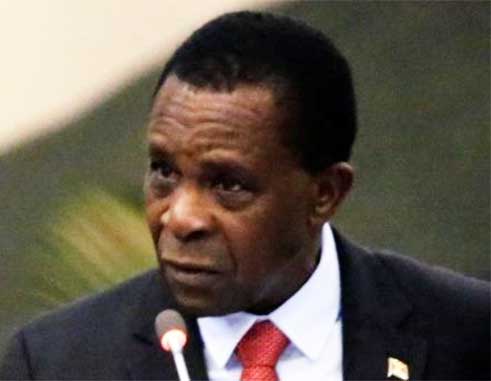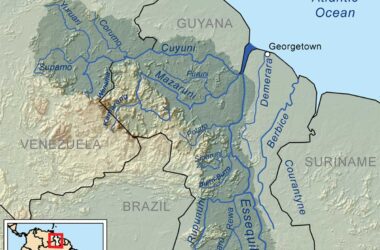IT’S not usual that a Caribbean party will win all seats in a general election and take home all the bacon. That used to happen from time to time long ago, but it was rare.
One of the most memorable instances in recent Caribbean history was when Ebenezer Joshua’s Peoples Progressive Party (PPP) won all the seats in a Saint Vincent and the Grenadines general election. The island was not yet independent, but Premier Joshua ruled the entire roost in the Kingstown House of Assembly.
However, the work of the House can’t take place without a Leader of the Opposition. This presented Joshua with what would probably have been an insurmountable problem elsewhere. But his wife, Ivy, was also a successful candidate on his party’s slate — and as his most trusted MP, he simply named her Leader of the Opposition.
It’s easy to conclude that the business of both sides of the House was shared and debated, discussed and resolved with pillow talk, but Joshua only did what many Caribbean leaders before and after him have done: find and employ the easiest way around and out of a difficult situation.
This historical anecdote was occasioned by the results of yesterday’s Grenada general elections in which the ruling New National Party (NNP) of Dr Keith Mitchell was returned to office with all the seats – and for the second consecutive time. The NNP won all 15 in the February 19th 2013 elections winning 58.2% of the votes from an 87.73% turnout. But its first time winning all 15 was on January 18th 1999, when it won 62.47% of the votes from a 56.54% turnout.
It’ll be hard for some to believe that this is more than just mere luck, but if it was, it wouldn’t be restricted to one Caribbean nation. Instead, it has more to do with two related factors – popularity and organization. It’s clear the NNP is popular, but it’s shown again that it’s also well able to organize itself to take its supporters to the polling booth on Election Day.
Another reason for the NNP’s near-miraculous success is the fact that not enough voters felt the opposition National Democratic Congress (NDC) was again ready to rule the three-island nation. Not that the NDC is never ready, as it has previously won two general elections in 1990 and 2008. It’s just that this time around not enough voters found it a better alternative to the NNP.
Not that the NNP is unbeatable either. Nor is it a perfect election machine. It’s lost at least three national contests before, including a referendum on constitutional change. But on its second try (it also called a general election on March 13th 1999) it has eventually been able to win an election on March 13th, the anniversary day of the 1979 Grenada Revolution.
NNP supporters today are happier than supporters of the Saint Lucia Labour Party (SLP) when it won 16 of the 17 seats contested under the leadership of Dr Kenny D. Anthony.
But what Caribbean political and electoral history has also repeatedly taught is that it’s not as much about winning an election as it is about how the winning party governs over the next five years.
A party can win all the seats or only have a one-seat majority (as in the case of Saint Vincent and the Grenadines today). At the end of the day, what matters is the ability of the government formed by the winning party or alliance to not just deliver on its promises, but to really make a difference in the lives of all the people – not only those who voted for it, but also those who voted against it.
This will be Dr Mitchell’s third time leading an administration without an elected opposition. But he will also find out – and not for the first time – that governing remains essentially the same regardless of the winning margin, as it has all to do with finding answers and solutions to the burning questions and growing problems that remain on voters’ minds beyond Election Day.
When the well-deserved partying is over, PM Dr Mitchell and the NNP will again be saddled with the heavy responsibility of taking Grenada, Carriacou and Petit Martinique through its many problems in ways and means that will not only keep his party popular, but will also change the social and economic conditions of the most needy and build the nation in ways that will make its people proud of how they have voted.







Seems the point is that the first past the post (Westminster) system is not working in this case. Clearly a system of proportional representation is required. When a party receives 40% of the votes cast and has no representation in parliament it’s high time to look at changing the way parliament is constituted. Strange indeed that the author of this article did not spend any effort commenting on this desolate fact.